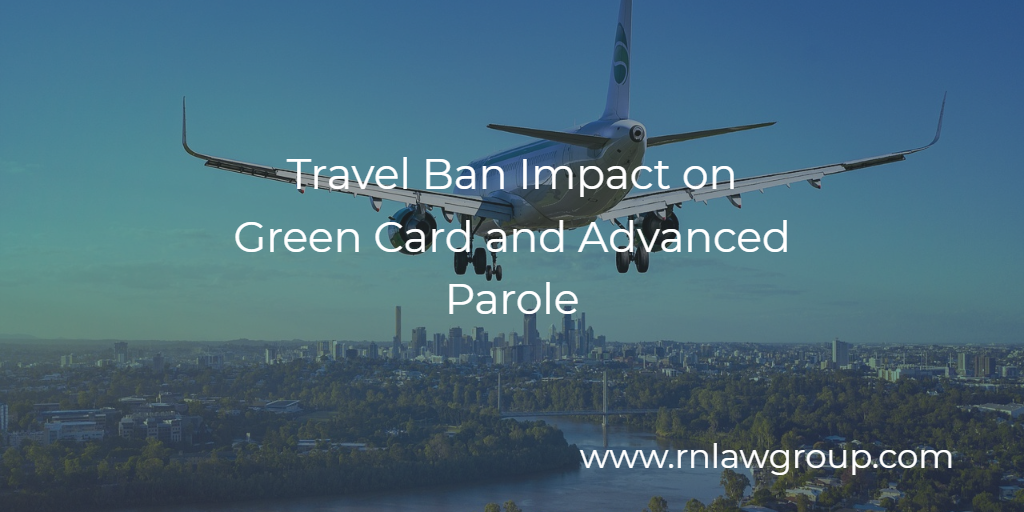
Travel Ban Impact on Green Card and Advanced Parole
On May 4, 2021, foreign nationals who were physically present in India within 14 days of travel to the U.S. were barred from entry, unless they qualified for an exception. As there has been no indication this travel ban will be lifted anytime soon, many Indian foreign nationals are concerned how their travel plans will be impacted for the remainder of 2021. This article reviews whether legal permanent residents, or green card holders, are subject to current iteration of the travel ban. It also reviews the impact of the ban on individuals with pending I-485 applications who plan to utilize Advanced Parole.
Are Green Card Holders Subject to the Recent Travel Ban?
President Biden removed green card holders from travel ban in February 24, 2021 proclamation. The newest ban for India, issued on April 30, 2021, applies to nonimmigrants that have been physically present in India during the 14 day period preceding attempted entry into the United States. However, this is NOT applicable to green card holders or their spouses. Thus, green card holders are able to travel directly between the U.S. and India without having to obtain a National Interest Exception (NIE).
What about those Utilizing Advanced Parole?
When an individual applies for a green card through an I-485 application they can also apply for an EAD and Advanced Parole (AP). These permit the individual to continue traveling in and out of the U.S. and work while their I-485 is pending with USCIS. The travel is allowed because the individual has been paroled during the pendency of their I-485 application, which will not be abandoned by their travel. Upon re-entry an individual will need to present their AP card to a border official in order to be permitted to return to the U.S.
Unfortunately, individuals using advanced parole are not exempt from the travel ban for travelers from India. Additionally, they are not eligible for NIEs on the basis of their Advanced Parole. As a result, their options are to quarantine in a third country for 14 days prior to entering the United States or, if available, qualify for exemption through relation to a U.S. citizen child. Lastly, those who still have an approved H-1B that is still active may want to pursue obtaining an NIE for their H-1B visa in order to re-enter the U.S. See this article for more information regarding that process: https://www.rnlawgroup.com/how-to-request-a-national-interest-exception-nie-in-india/
If you are anticipating travel outside the United States within the next few months and you are not a green card holder we strongly advise you consult with an immigration attorney prior to travel.
By: Staff Attorney
